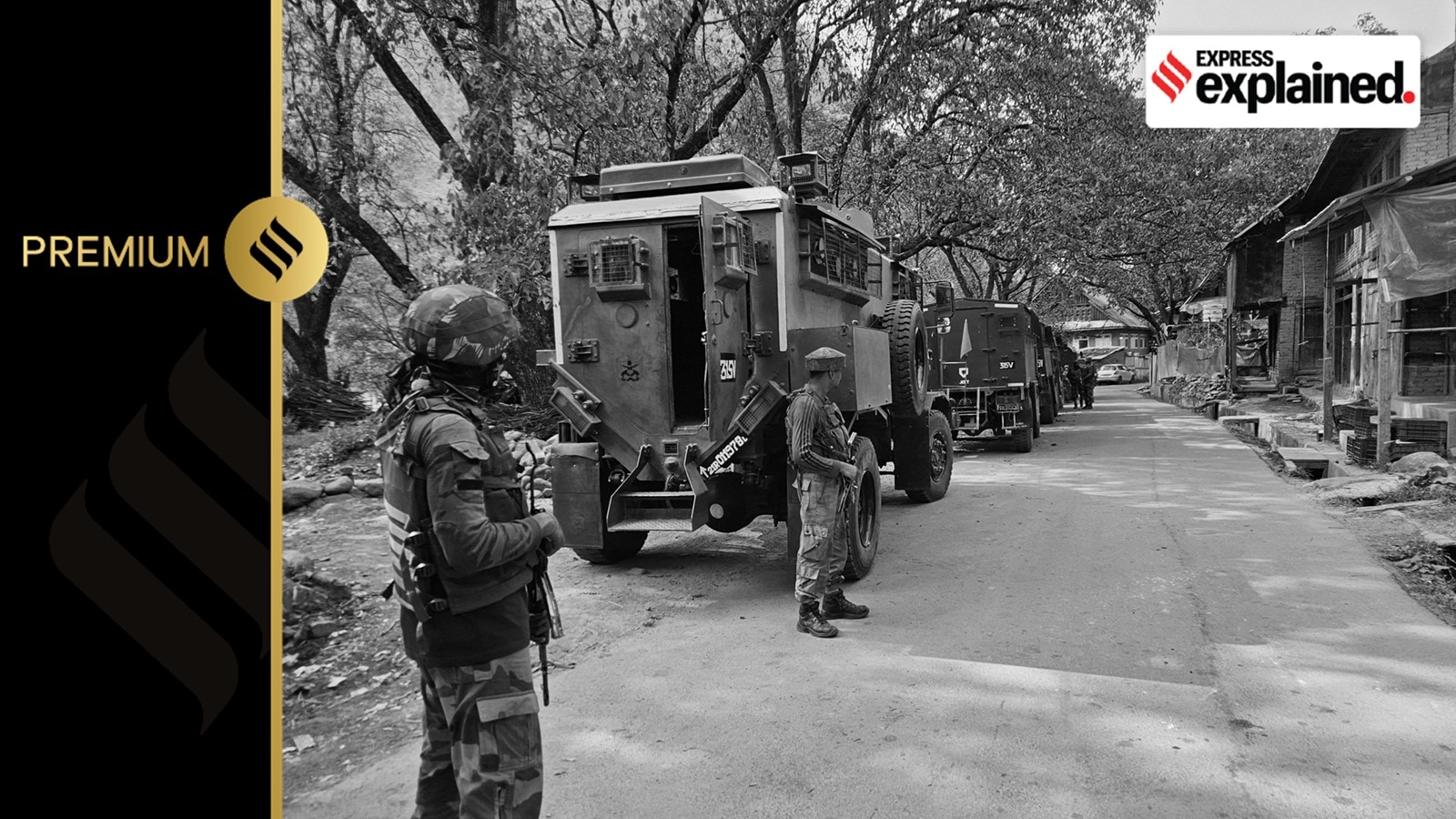Expert Explains: What is a National Security Strategy and why India must have one
The NSS would have to embrace all aspects of security, not just military and internal security. What should be its doctrinal framework, and what will it take to put one together?
 Military security would be only one aspect of the NSS, which would include economic, internal, diplomatic, human, climate, food, water, and every other conceivable form of security necessary for the well-being of India’s people. (Express photo by Shuaib Masoodi/Representational)
Military security would be only one aspect of the NSS, which would include economic, internal, diplomatic, human, climate, food, water, and every other conceivable form of security necessary for the well-being of India’s people. (Express photo by Shuaib Masoodi/Representational) A long wait is said to be coming to an end as the National Security Council Secretariat (NSCS) sets about drafting India’s first written National Security Strategy (NSS), according to a report published in The Indian Express on November 4. India has never had such a document — and the debate on whether one is needed is of fairly recent origin, spanning the last two decades or so.
Vice Admiral Biswajit Dasgupta (Retd) PVSM AVSM, a former Commander-in-Chief of the Eastern Naval Command, explains:
Should India have a publicly articulated National Security Strategy?
In other words, does the public need to know how the Indian government plans to handle national security in all its dimensions? Of course, they must know.
It is basic to their existence and well-being as a body of people that is called the nation. In the absence of a publicly articulated National Security Strategy, there would be a lack of cohesion and common understanding, and diverse interpretations of what may be in the interest of national security.
It is entirely possible that we do not have one so far because we did not, till now, have the strategic maturity and confidence to articulate such a strategy. The growing maturity of our military and strategic communities and changes in our apex security management structure are recent phenomena. This is one of the main reasons why we have now mustered the courage to draft a National Security Strategy.
What will it take to draft such a strategy?
The NSS would have to embrace all aspects of security. Military security would be only one aspect of the canvas, which would include economic, internal, diplomatic, human, climate, food, water, and every other conceivable form of security necessary for the well-being of India’s people.
Military and internal security would be a significant enabler for every other kind of security to be guaranteed. The management of defence and internal security would therefore need to be robust and articulated well.
The all-encompassing nature of this strategy would require wide consultations. It is beyond the capability and understanding of a handful of people who staff the NSCS, however brilliant they may be, individually and collectively. Each of the numerous aspects of security is in itself multidimensional, and would impact the manner in which we conduct business.
The preparation of the NSS, therefore, would necessarily be an iterative process. It would need many reiterations of inter-ministerial consultancy and gamed several times over before it is ready for consideration by the Cabinet Committee on Security (CCS) which would then accord final approval.
The NSS would contain several features that may not be appropriate for public release. There will thus be a need for two versions, one for the public and one strictly for a classified readership.
The rising stature of India and its growth projections over the next few decades have made it a significant player in world affairs for the present and the foreseeable future. Many countries see their futures as intertwined with India’s growth story. Additionally, complex global, regional, and local geopolitical scenarios will ensure detailed scrutiny and comment on our publicly articulated NSS. It, therefore, has to be an involved exercise with ownership and approval at the highest levels of government.
What would be the guiding principles of the NSS?
Doctrine normally precedes strategy. A doctrine is a set of established or agreed principles that guide actions. A strategy is a plan of action that emanates from doctrine.
While doctrines are more permanent than strategies, they must also remain flexible to cater for changing paradigms and major conceptual shifts. Doctrines must be reviewed periodically to ensure that they remain relevant and do not become dogmas. And with every update in doctrine, the strategy must be reviewed.
Another feature of doctrine and strategy is that they must be taught in order to facilitate a common understanding among planners and practitioners of national security. This is yet another need that the NSS must fulfill.
We are embarking on the drafting of a National Security Strategy without having specifically articulated our National Security Doctrine. However, we do have the longest written Constitution in the world. The drafters of the NSS would do well to prepare for themselves a set of guiding principles culled out from this Constitution that would aid in formulating a strategy that is in consonance with those principles.
What doctrines and strategies must the NSS be mindful of?
There is a hierarchy of doctrines. Doctrines at the national strategic level are formulated and approved at the highest echelons of government — for example, the Nuclear Doctrine. Lower doctrines are formulated at the military-strategic, operational, and tactical levels for different levels of war-fighting (in the military) or tackling internal disorder (for police/ paramilitary forces).
Each higher doctrine and its accompanying strategy must guide the formulation of associated lower doctrines. The NSS must serve this critical doctrinal function.
To illustrate this point with an example from the military: the NSS should become the starting point for theaterisation of the Indian armed forces. It should, therefore, state that the Indian armed forces will be constituted into theatres, with the Theatre Commander (TC) being responsible to the Chief of Defence Staff (CDS) for all military operations conducted in the theatre.
The NSS should also provide doctrinal clarity on all aspects that will enable the CDS to draft his Theatre Doctrines, which in turn will guide the TCs to formulate their theatre strategies. Every other lower doctrine or strategy will take guidance from and be in consonance with the higher doctrines. Therefore, apart from lateral consultations, vertical consultations may also be prudent while formulating not just the NSS but lower doctrines as well.
How soon can the NSS be expected?
It is not known how much progress the drafters of the NSS have made so far. This is not an exercise to be carried out in haste; at the same time, there should be no hesitation in putting out an NSS Mark 1 and keep refining it as implementation progresses, and changing circumstances force adaptations. As mentioned earlier, no doctrine or strategy is cast in stone.
So, while we must have an NSS, it will be wise to make haste slowly. Two years from today could be a reasonable timeframe.
Vice Admiral Biswajit Dasgupta (Retd) PVSM AVSM, retired as Commander-in-Chief of the Eastern Naval Command in July 2023.
- 01
- 02
- 03
- 04
- 05






































